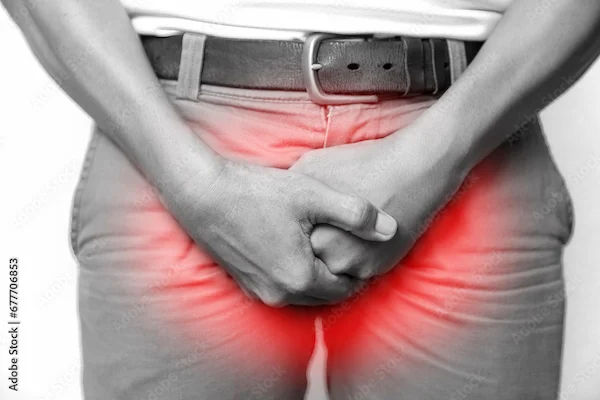Ultimate Guide to UTI Prevention Measures: How to Protect Against Urinary Tract Infections (UTI)
Discover practical steps to prevent urinary tract infections (UTIs). Learn how hydration, hygiene, probiotics, and lifestyle choices can help reduce your risk and maintain a healthy urinary system.

Written by Dr.Sonia Bhatt
Last updated on 3rd Jul, 2025

Introduction
Urinary tract infections (UTIs) are common but preventable. While UTIs are treatable with antibiotics, preventing them in the first place is often easier and less stressful. Although anyone can get a UTI, women are more prone due to their anatomy. With a few simple habits, however, you can significantly reduce your risk. This guide covers practical steps to help you prevent UTIs and keep your urinary system in top shape.
What is a UTI and Why Does Prevention Matter?
A UTI is an infection that occurs when harmful bacteria enter the urinary tract, which includes the kidneys, bladder, and urethra. Common symptoms include painful urination, frequent urges to urinate, and discomfort in the lower abdomen. UTIs are usually treatable with antibiotics, but preventing them in the first place is the best approach. Recurrent UTIs can be particularly frustrating and lead to more serious complications, such as kidney infections, which is why proactive prevention is key.
1. Stay Hydrated
Drinking enough water is one of the easiest and most effective ways to help prevent a UTI. Water helps flush out bacteria from the urinary tract, reducing the risk of infection. When you stay hydrated, your body has the resources it needs to keep your urinary system clean.
How Much Water Do You Need?
Aim for about 1.6 to 2 litres of water a day. Your needs may vary depending on your activity level, the climate you live in, and your overall health. If you're active or live in a hot environment, you may need more water. The key is to keep sipping throughout the day, even if you’re not thirsty. If you find it difficult to drink enough, try carrying a water bottle with you or adding a slice of lemon or cucumber for extra flavour.
2. Make Bathroom Habits a Priority
When it comes to UTI prevention, your bathroom habits matter. It’s about more than just hygiene—the timing and frequency of urination are also important.
Don’t Hold It In
Make sure to empty your bladder regularly—ideally every 4 to 8 hours. Holding urine in for too long can allow bacteria to linger in the bladder, which may increase the risk of infection. By urinating regularly, you're helping flush bacteria out before it has a chance to multiply. If you're working or busy, set a reminder to make sure you take bathroom breaks throughout the day.
Wipe from Front to Back
Always wipe from front to back after using the toilet. This simple habit helps prevent bacteria from the anal area from transferring to the urethra, significantly reducing your risk of infection.
Urinate After Sex
Sexual activity can introduce bacteria into the urinary tract. Urinating shortly after sex helps flush out any bacteria that may have entered the urethra, greatly lowering your risk of developing a UTI. It’s a small step that can have a big impact on your urinary health.
3. Keep It Comfortable Down There
What you wear and how you care for your body can impact your risk of getting a UTI. With a few simple choices, you can lower the chances of bacteria taking hold.
Choose Cotton Underwear
Opt for cotton underwear, which is breathable and helps keep the genital area dry. Avoid tight-fitting synthetic fabrics that trap moisture and create a perfect breeding ground for bacteria. You might also want to consider avoiding thongs, as they can promote the transfer of bacteria from the anal area to the urethra.
Maintain Good Genital Hygiene
Wash the genital area with mild, unscented soap and warm water. Avoid using scented soaps, douches, or sprays, as they can irritate the urethra and disrupt the natural balance of bacteria. Keeping the area clean is important, but overwashing or using harsh products can do more harm than good. Also, after bathing, ensure the area is thoroughly dried, as moisture can encourage bacterial growth.
4. Use Probiotics and Supplements Wisely
Certain foods and supplements can help promote a healthy urinary tract and prevent infections. Probiotics and cranberries are commonly used for this purpose.
Probiotics: The Good Bacteria
Probiotics, such as Lactobacillus, help support healthy bacteria in the gut and urinary system. Maintaining a healthy balance of bacteria in the body reduces the chance of harmful bacteria taking over. Probiotics are found in foods like yoghurt, kefir, and fermented vegetables, or in supplement form. Including probiotics in your diet regularly may also boost your immune system, helping to fight off infections before they have a chance to develop.
Cranberry for UTI Prevention
Cranberries are often recommended for UTI prevention. They contain proanthocyanidins, compounds that help prevent bacteria from sticking to the bladder walls. If you choose to try cranberries, opt for unsweetened cranberry juice or supplements, as added sugar can irritate the urinary tract. Cranberry is most effective when used as part of an overall healthy lifestyle, including hydration and good hygiene habits.
5. Consider Your Lifestyle Choices
Your overall lifestyle plays a significant role in preventing UTIs. Healthy eating, regular exercise, and good hygiene can all contribute to urinary tract health.
Eating for Your Urinary Health
A healthy diet supports your immune system, helping to fight off infections. Foods rich in vitamin C, such as citrus fruits and bell peppers, help acidify the urine, making it less hospitable to bacteria. Eating a balanced diet full of fruits, vegetables, and whole grains strengthens your overall health and provides your body with the nutrients it needs to stay healthy and strong.
Exercise and Hygiene
Exercise is great for overall health, but it’s important to practice good hygiene afterward. Sweat can increase moisture in the genital area, so always shower and change into dry clothes after exercising. If you use public showers, wear flip-flops to protect yourself from bacteria. Also, avoid tight workout clothes or pantyhose, which can trap moisture and heat.
When to See a Doctor?
While these preventive measures can greatly reduce the risk of UTIs, it’s still important to be aware of the symptoms and seek medical help if necessary. If you experience any of the following, see a doctor right away:
A burning sensation while urinating
Frequent and urgent urges to urinate
Cloudy, dark, or foul-smelling urine
Pain or pressure in the lower abdomen or back
If you’re prone to recurrent UTIs, your doctor may recommend additional preventive measures or treatments. It’s also important to finish any prescribed antibiotics, even if you feel better, to ensure the infection is fully treated.
Conclusion
Preventing a UTI doesn’t have to be complicated. By staying hydrated, practising good bathroom habits, wearing breathable clothing, and incorporating probiotics and cranberries into your routine, you can significantly reduce your risk. If you do experience symptoms, don’t hesitate to seek medical attention. A little prevention goes a long way in maintaining your urinary health and overall well-being, allowing you to live your life without the stress of frequent infections.
Consult Top Urologists
Consult Top Urologists

Dr. Sateesh Marriwada
Urologist
17 Years • MBBS, MS (General Surgery), Mch ( Genito Urinary Surgery)
Visakhapatnam
Apollo 24|7 Clinic - Andhra Pradesh, Visakhapatnam

Dr Tharaka Mourya Nutulapati
Urologist
7 Years • MBBS, MS (General Surgery), Mch ( Urology)
Visakhapatnam
Apollo 24|7 Clinic - Andhra Pradesh, Visakhapatnam
Dr. Mohammed Rehan Khan
Urologist
8 Years • MBBS, MS (General Surgery), Mch (Urology)
Barasat
Diab-Eat-Ease, Barasat

Dr. Prabir Basu
Urologist
19 Years • MBBS, MS General Surgery, DNB Genito-Urinary Surgery
Jodhpur Park
Dr. Prabir Basu urology clinic, Jodhpur Park
(125+ Patients)

Dr. Sandeep Maheswara Reddy Kallam
Urologist
6 Years • MBBS, MS (General Surgery), M Ch (Genito-Urinary Surgery), Post Doctoral Fellowship in Uro-Surgical Oncology
Visakhapatnam
Dr. SANDEEP MAHESWARA REDDY K _- best Urologist in visakhapatnam, Visakhapatnam
(250+ Patients)

